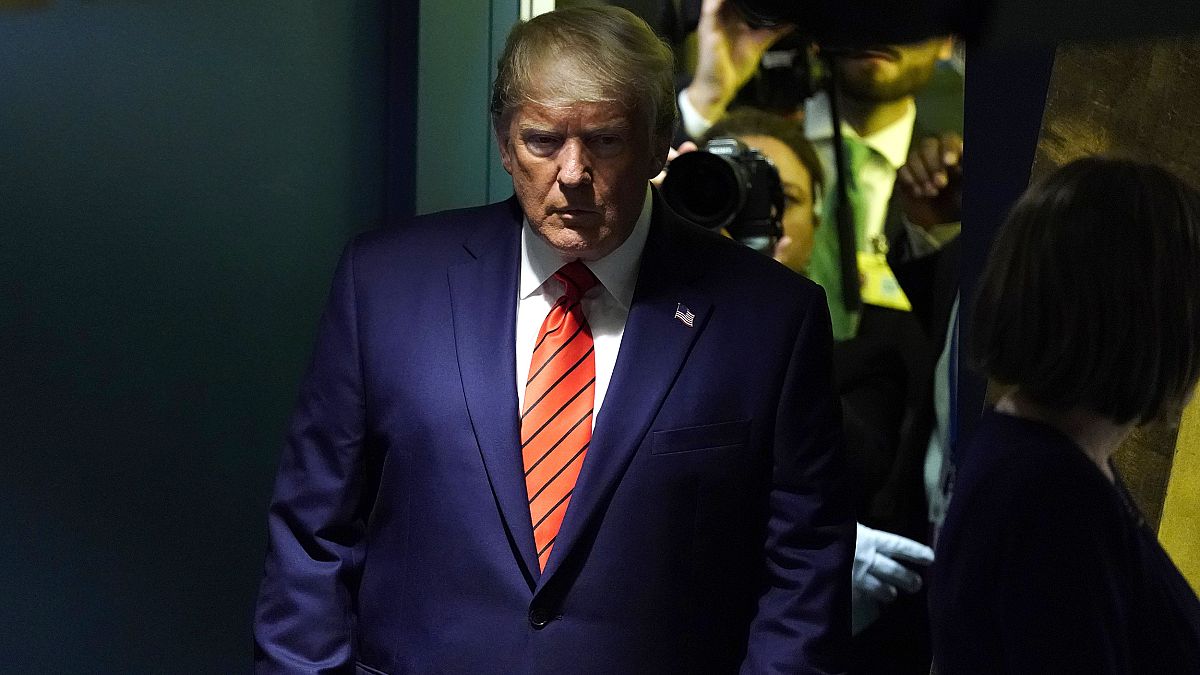Legal analysis: The singling out of Joe Biden's son ultimately could compromise the president's possible defense.
A flood of House Democrats announced their support Tuesday for impeachment proceedings against President Donald Trump amid reports that the president might have ordered Ukraine military aid frozen to pressure the country's government to investigate former Vice President Joe Biden and his son Hunter, who had business dealings in the country. Speaker Nancy Pelosi is expected to announce her backing for an impeachment inquiry as well.
Trump's defense options narrow every day that he makes damaging admissions. But the president might avoid impeachment or criminality if his intangible power to conduct foreign affairs ultimately is broad enough.
Congress holds the express constitutional authority to regulate public and private dealings with other nations in its war and foreign commerce powers. Even though the president's power to act in foreign affairs isn't really articulated in the Constitution, the Supreme Court has recognized the president's "vast share of responsibility for the conduct of our foreign relations" and the independent authority to act, sometimes without congressional authority.
But even with what the Supreme Court has called the "unique responsibility" and the "lead role" for the conduct of foreign affairs, does the president have the power to withhold foreign aid at a whim?
Sometimes, yes, he might.
Congress has previously passed legislation dealing with foreign economic assistance. Some legislation purports to instruct the president to prevent disbursements to foreign nations that have engaged in disapproved conduct. Examples include seizing the property of or breaching contracts with U.S. citizens. One 1973 law prohibits the use of foreign assistance to pay for abortions.
Of course, there are possible applications of federal criminal law to the president's alleged conduct, such as the extortion or bribery statutes, or even the campaign finance law used against Trump's former attorney Michael Cohen.
But former special counsel Robert Mueller's investigation essentially recognized the president's expansive executive power as overriding what might be criminal if any other citizen took the same action. It also reaffirmed the Department of Justice's view of the president's immunity while in office. All reasonable doubts as to criminality would likely be resolved in favor of the executive, especially given that the Justice Department's policy is not to charge cases based upon probable cause, but rather when the government believes it can prove its case beyond a reasonable doubt.
So then, if this conduct is not a crime, does that mean it's not impeachable?
No. Impeachable conduct is not necessarily criminal conduct. Some academics disagree with that position, however. Harvard law professor Alan Dershowitz takes the view that the Constitution requires an actual crime to impeach. But history suggests that abuse of power alone will suffice for an article of impeachment and that no crime is required. There's also plenty of support for the notion that corruption of the electoral process is an impeachable offense, even if it is not a crime.
The president's possible defense emerges from foreign affairs history. He could claim that (1) he has broad authority to conduct foreign affairs; (2) even though Congress has enumerated foreign affairs powers, the Constitution is silent on whether he can withhold foreign aid; (3) some statute, somewhere, allows him to withhold foreign aid, and even possibly (4), the law lets him condition such aid on another country doing something beneficial for the United States, such as — and especially — rooting out corruption which could harm the U.S.
Assume for the moment that all of those are true, and that the president enjoys the broadest possible power to condition foreign aid to a country on that nation prosecuting crimes that harm the U.S. Even so, the president still has a problem.
It's the singling out of Democratic presidential candidate Joe Biden's son that ultimately could compromise this defense.
No reasonable, impartial observer would believe that any investigation into the former vice president's son would represent a corruption prosecution that Trump believed affected national security or even merited mention on a phone call with a head of state. It doesn't really matter if it's bribery, extortion or a violation of campaign finance law. It ultimately looks like an abuse of power and a corruption of the electoral process — both of which are impeachable events.
That's why this latest controversy might not pose a real criminal threat to the president, but it really could pose an impeachment threat.
